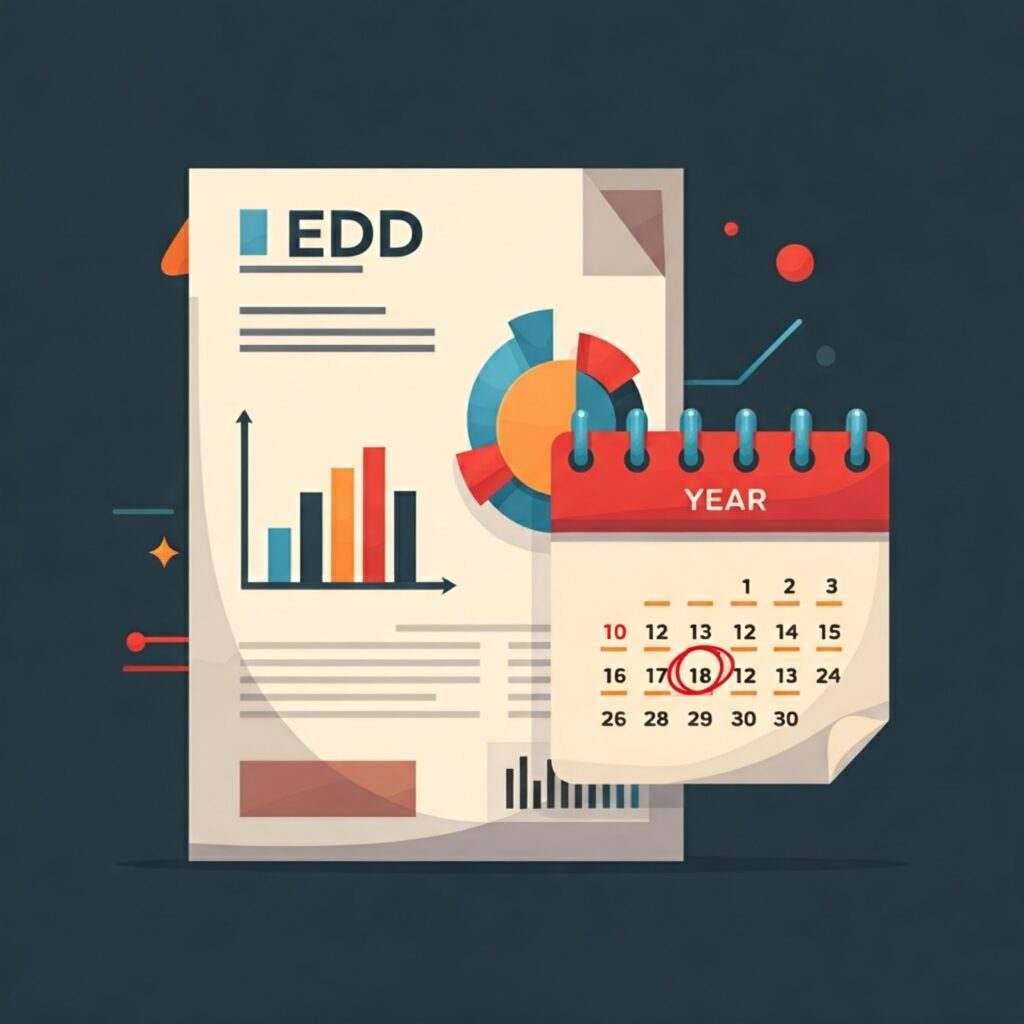Understanding Due Diligence in Banking: Importance, Practices, and Applications

Due diligence in banking is a critical process for ensuring regulatory compliance, assessing risk, and maintaining the integrity of financial transactions. This article explores why due diligence is performed, its importance, the practices involved, when it’s conducted, and how it varies across different types of banking services. What is Banking Due Diligence? Banking due diligence refers to the structured process of assessing, verifying, and monitoring customers, businesses, or transactions to identify and mitigate risks. It ensures that financial institutions operate in compliance with regulatory requirements while protecting their reputation and reducing exposure to financial crimes. Why is Due Diligence in Banking Important? Regulatory Compliance: Ensures adherence to laws such as the Anti-Money Laundering (AML) Act, Know Your Customer (KYC) regulations, and international sanctions. Risk Mitigation: Helps identify high-risk customers or transactions, preventing fraud, money laundering, and terrorist financing. Protecting Reputation: Demonstrates accountability and ethical business practices, enhancing public trust. Informed Decision-Making: Provides essential information for strategic decisions like bank acquisitions, mergers, or partnerships. Preventing Financial Losses: Identifies potential risks that could lead to penalties, losses, or reputational damage. When is Due Diligence Conducted? Customer Onboarding: Conducted during the initial stages of establishing a relationship with a customer (individual or business). Account Monitoring: Ongoing monitoring ensures that customer activities align with their risk profile. Specific Events: Triggered by events such as unusual transactions, changes in ownership, or regulatory updates. Mergers and Acquisitions (M&A): In investment banking, due diligence is critical during mergers, acquisitions, or large-scale investments to assess financial health and compliance risks. Key Practices in Banking Due Diligence Customer Due Diligence (CDD): Verifying customer identities and assessing risk levels. Collecting documentation such as ID proofs, financial statements, and tax records. Enhanced Due Diligence (EDD): In-depth checks for high-risk customers, such as politically exposed persons (PEPs) or those from high-risk jurisdictions. Monitoring large transactions or unusual patterns closely. Transaction Monitoring: Analyzing customer transactions to identify suspicious activities or deviations from the expected behavior. Sanctions Screening: Checking individuals and entities against global sanctions and watchlists. Document Verification: Ensuring the authenticity of documents provided during onboarding or account reviews. Risk Assessment: Assigning risk ratings based on factors like geography, industry, transaction size, and client behavior. How Due Diligence Differs Across Banking Types Consumer Banking: Focus: Verifying individual identities and monitoring account activities for unusual transactions. Practices: Simplified due diligence for low-risk accounts; EDD for high-value customers or large cash deposits. Business Banking: Focus: Assessing the financial health, ownership structure, and compliance of business clients. Practices: KYB (Know Your Business) checks, review of corporate registrations, and ongoing monitoring of transactions. Investment Banking: Focus: Conducting in-depth analyses during mergers, acquisitions, and major investment deals. Practices: Financial audits, legal compliance checks, and valuation assessments. Private Banking: Focus: Managing high-net-worth clients (HNWIs) while ensuring compliance with tax laws and AML regulations. Practices: EDD to evaluate complex ownership structures and sources of wealth. Bank Acquisitions: Focus: Evaluating the target bank’s financial health, customer base, compliance practices, and operational risks. Practices: Comprehensive due diligence involving audits, regulatory reviews, and risk assessments. Bank Due Diligence Checklist Customer Identification: Verify personal or business identities using official documents. Ownership Structure: Assess beneficial ownership for businesses and complex entities. Financial Health: Review financial statements, credit history, and tax records. Risk Profiles: Assign and update risk ratings based on ongoing reviews. Compliance Screening: Check against sanctions, PEP lists, and adverse media. Transaction Analysis: Monitor transactions for suspicious patterns or large volumes. Geographic Risks: Evaluate risks associated with customers or transactions in high-risk regions. Conclusion Banking due diligence is indispensable for maintaining compliance, mitigating risks, and building secure relationships. Whether it’s verifying an individual customer in consumer banking or conducting an extensive risk assessment during a merger in investment banking, due diligence practices ensure transparency, trust, and regulatory adherence. By integrating robust due diligence processes and leveraging advanced tools, banks can safeguard their operations and foster long-term success in a rapidly evolving financial landscape.
Understanding Money Laundering: Definition, Methods, and Prevention

Understanding Money Laundering is crucial in discussions about financial crime and compliance. Despite its prevalence, many people are unfamiliar with what it entails, why it happens, and how it impacts society. This article explores the concept, its methods, its consequences, and the measures in place to combat it, providing a clearer perspective on understanding money laundering. What is Money Laundering(ML)? Money laundering is the process of concealing the origins of illegally obtained money to make it appear legitimate. This financial crime allows criminals to integrate illicit funds into the formal economy, masking their true source and enabling further illegal activities. How Does Money Laundering Work? Money laundering typically involves three stages: Placement: Illegally obtained money is introduced into the financial system, often through cash deposits, smurfing (breaking large sums into smaller amounts), or using casinos. Layering: Complex transactions are carried out to obscure the money’s origin. This may include wiring funds across multiple accounts, purchasing high-value goods, or engaging in shell companies. Integration: The “cleaned” money re-enters the economy as seemingly legitimate funds, often through investments, real estate, or legitimate businesses. What is the Purpose of Money Laundering? The main purpose of money laundering is to enable criminals to: Enjoy Illicit Gains: Convert illegal proceeds into usable funds. Avoid Detection: Conceal the link between the money and the crime. Fund Further Crimes: Finance ongoing illicit activities, including terrorism, drug trafficking, or human trafficking. Who Commits Money Laundering? Money laundering is associated with a range of actors, including: Organized Crime Groups: Drug cartels, human trafficking networks, and arms dealers. Corrupt Officials: Politicians and bureaucrats who embezzle public funds. Terrorist Organizations: Groups that use laundered money to finance their operations. White-Collar Criminals: Professionals engaging in tax evasion, fraud, or insider trading. How Does Money Laundering Impact Society? The consequences of money laundering are far-reaching and include: Economic Distortion: Undermines legitimate businesses and destabilizes financial markets. Reduced Tax Revenue: Laundered money avoids taxation, depriving governments of essential funds. Increased Crime Rates: Fuels organized crime and terrorism by enabling their operations. Reputational Damage: Tarnishes the credibility of financial institutions and economies involved. What Are We Doing to Prevent ML? Preventing money laundering requires coordinated efforts between governments, businesses, and international organizations. Key measures include: Regulations: Anti-Money Laundering (AML) laws and the Anti-Money Laundering Act enforce strict rules for financial institutions. Regulations mandate customer identification, transaction monitoring, and suspicious activity reporting. International Collaboration: Organizations like the Financial Action Task Force (FATF) set global standards for AML practices and monitor compliance. Cross-border cooperation helps track and combat laundering activities. Technological Solutions: AI-powered tools detect unusual patterns and flag suspicious transactions. Blockchain analysis enhances transparency and traceability in cryptocurrency transactions. How AML and Due Diligence Help Stop ML Anti-Money Laundering (AML): KYC (Know Your Customer): Financial institutions verify customer identities to prevent anonymous transactions. Transaction Monitoring: Continuous oversight helps detect anomalies indicative of laundering activities. Reporting Requirements: Suspicious Activity Reports (SARs) alert authorities to potential money laundering. Due Diligence: Standard Due Diligence (SDD): Ensures basic customer information is collected and verified. Enhanced Due Diligence (EDD): Involves in-depth checks for high-risk individuals or transactions. Continuous Reviews: Periodic reviews help update customer risk profiles and detect emerging threats. Conclusion Money laundering is a sophisticated crime with significant social and economic implications. While the methods criminals use to launder money continue to evolve, so do the tools and strategies for combating it. By implementing robust AML programs, conducting thorough due diligence, and leveraging technology, we can disrupt laundering schemes and protect the integrity of the financial system. Understanding money laundering and its prevention is not just a regulatory necessity—it’s a collective responsibility to ensure a safer and fairer economy.
Understanding Third-Party Due Diligence: A Comprehensive Guide

In today’s interconnected business environment, third-party relationships are critical to operations, yet they also introduce unique risks. Third-party due diligence (TPDD) is an essential process for identifying and mitigating those risks, ensuring compliance, and safeguarding an organization’s reputation. This article explores the meaning of third-party due diligence, why it’s necessary, how it helps, and best practices for conducting it effectively. Understanding Third-Party Due Diligence Third-party due diligence refers to the process of assessing and verifying the integrity, compliance status, and potential risks associated with engaging third parties such as suppliers, vendors, contractors, distributors, or business partners. The goal is to ensure these entities align with your organization’s standards, regulatory requirements, and ethical practices. Why is Third-Party Due Diligence Important? Engaging with third parties without proper vetting can expose an organization to a range of risks, including: Compliance Risks: Third parties may fail to adhere to regulations such as anti-bribery laws, AML requirements, or trade sanctions, potentially implicating your organization. Reputational Risks: Associations with unethical or non-compliant third parties can damage your organization’s credibility. Operational Risks: Poorly managed third-party relationships can lead to supply chain disruptions or substandard services. Financial Risks: Engaging with high-risk entities can result in fines, legal liabilities, or revenue loss. How Third-Party Due Diligence Helps Risk Mitigation: Identifies potential red flags before formalizing relationships. Regulatory Compliance: Ensures adherence to laws like the Foreign Corrupt Practices Act (FCPA), UK Bribery Act, and AML regulations. Informed Decision-Making: Provides a clear picture of a third party’s integrity, financial health, and operational capacity. Building Trust: Establishes transparent and secure partnerships with third parties. How to Conduct Third-Party Due Diligence Effective third-party due diligence involves a structured process that combines data collection, analysis, and ongoing monitoring. Here’s a step-by-step approach: Define the Scope: Identify the type of relationship (supplier, distributor, contractor, etc.). Determine the level of risk based on factors such as geographic location, industry, and transaction size. Collect Data: Obtain basic information, including registration details, ownership structure, financial statements, and certifications. Request references and conduct interviews, if necessary. Screen for Risks: Use third-party due diligence providers or screening tools to: Check for sanctions, watchlist mentions, or adverse media coverage. Assess links to politically exposed persons (PEPs) or high-risk industries. Conduct Risk Assessment: Evaluate risks based on the third party’s compliance history, operational practices, and financial stability. Validate Information: Verify the authenticity of documents and cross-check data with reliable sources. Monitor Continuously: Implement ongoing monitoring to identify any changes in the third party’s risk profile or activities. What to Look Out For During Third-Party Due Diligence Incomplete or Inconsistent Information: Gaps in documentation or discrepancies in responses may indicate a lack of transparency. Links to High-Risk Jurisdictions: Associations with countries known for corruption, money laundering, or weak regulatory oversight. Adverse Media Coverage: Negative news articles or public records revealing unethical or illegal practices. Complex Ownership Structures: Obscure ownership may hide connections to sanctioned individuals or entities. Financial Instability: Signs of financial distress or insolvency risks. Third-Party Due Diligence Tools and Providers Numerous providers and tools can streamline the due diligence process. Some of the most popular include: World-Check: A database for screening against sanctions, PEPs, and adverse media. Dun & Bradstreet: Offers detailed business credit reports and risk assessments. LexisNexis Risk Solutions: Provides tools for compliance, AML, and third-party screening. EcoVadis: Focuses on sustainability and corporate social responsibility assessments. Third-Party Due Diligence Checklist Use the following checklist to ensure thorough third-party due diligence: Gather key details (name, address, registration). Verify ownership structure and beneficial owners. Screen against sanctions and watchlists. Assess compliance with industry-specific regulations. Review financial statements and credit reports. Investigate links to adverse media or legal issues. Document findings and risk assessments. Set up ongoing monitoring processes. Conclusion Third-party due diligence is a critical step in mitigating risks, ensuring compliance, and building secure business relationships. By following a structured approach and leveraging specialized tools, organizations can confidently engage with third parties while safeguarding their operations and reputation. Remember, effective due diligence isn’t a one-time task—it’s an ongoing commitment to maintaining transparency and integrity in your partnerships.
Understanding AML Periodic Reviews: A Key to Ongoing Compliance

Periodic reviews are an essential component of an effective Anti-Money Laundering (AML) program. These reviews ensure that businesses remain compliant with regulatory requirements, maintain updated risk assessments, and proactively address potential threats. In this article, we’ll explore what AML periodic reviews are, why they’re conducted, when they should take place, what to check, and how they connect with Enhanced Due Diligence (EDD). What Are Periodic Reviews in AML? AML periodic reviews are scheduled evaluations of customer accounts, transactions, and associated risks to ensure compliance with AML regulations. These reviews focus on assessing whether a client’s risk profile or behavior has changed and verifying that the organization’s AML policies are being followed. Why Conduct Periodic Reviews? Periodic reviews serve several critical purposes: Regulatory Compliance: Ensures adherence to AML laws and guidelines. Risk Mitigation: Identifies and addresses potential risks that may have emerged since the initial onboarding or last review. Data Accuracy: Updates customer records to reflect current information. Proactive Threat Detection: Flags unusual activities that could indicate money laundering or other financial crimes. Audit Preparedness: Demonstrates a consistent compliance framework to regulators and auditors. When Should Periodic Reviews Be Conducted? The frequency of AML periodic reviews depends on the risk profile of the customer: High-Risk Customers: Typically reviewed annually or more frequently. Medium-Risk Customers: Reviewed every 1-3 years, depending on the organization’s policy. Low-Risk Customers: Reviewed every 3-5 years. Additionally, reviews should be triggered by specific events, such as: Significant changes in account activity or transaction patterns. Alerts raised during transaction monitoring. Changes in a customer’s ownership structure or business operations. What Do We Check During an AML Periodic Review? An AML periodic review involves examining various aspects of a customer’s profile and activities, including: Customer Identification Data: Verify that customer details (e.g., name, address, beneficial ownership) are up-to-date. Cross-check against watchlists, sanctions lists, and Politically Exposed Persons (PEP) databases. Transaction Activity: Review transaction history for unusual patterns, such as sudden spikes in activity or transactions involving high-risk jurisdictions. Assess whether the volume and nature of transactions align with the customer’s risk profile. Risk Assessment: Reassess the customer’s risk rating based on updated information and activity. Identify any new factors that could elevate the risk profile, such as geopolitical changes or industry risks. Document Verification: Ensure all required documentation is complete and current, such as KYC and KYB records. Validate the authenticity of documents provided. What Are We Looking For? The primary goal of a periodic review is to identify red flags or discrepancies that could indicate financial crime. Key indicators include: Transactions inconsistent with the customer’s known profile or business operations. Links to sanctioned entities or high-risk jurisdictions. Sudden changes in ownership structure or beneficial owners. Unexplained sources of funds or unusual payment methods. How Does It Tie in with EDD? Periodic reviews often uncover information that necessitates Enhanced Due Diligence (EDD). For example: Triggering Events: If a periodic review reveals red flags, such as suspicious transactions or high-risk associations, EDD processes may be initiated to gather more detailed information. Deeper Risk Assessment: EDD involves a more comprehensive analysis of the customer’s activities, ownership, and sources of funds. Continuous Monitoring: Customers flagged for EDD are typically subject to more frequent reviews and stricter monitoring protocols. Challenges in Conducting Periodic Reviews Despite their importance, periodic reviews can be challenging due to: High Data Volume: Reviewing large numbers of accounts and transactions requires significant resources. Complex Ownership Structures: Identifying beneficial owners in multi-layered corporate entities can be time-consuming. Evolving Regulations: Keeping up with changing AML requirements adds complexity. Human Error: Manual processes increase the risk of oversight and inconsistencies. How Technology Can Help Leveraging technology can streamline AML periodic reviews and overcome challenges: Automation: AI-powered tools can automate data collection, transaction monitoring, and risk assessments. Integrated Systems: Centralized platforms consolidate customer data, making it easier to access and analyze. Real-Time Alerts: Advanced analytics flag suspicious activities as they occur. Regulatory Updates: Automated systems ensure compliance by integrating the latest AML regulations. Conclusion AML periodic reviews are a vital aspect of maintaining regulatory compliance and mitigating financial crime risks. By conducting thorough evaluations, organizations can ensure that customer information is accurate, risks are effectively managed, and potential threats are addressed promptly. When combined with EDD processes and supported by advanced technology, periodic reviews provide a robust defense against money laundering and other financial crimes.
The Role of AI in Compliance: Transforming Risk Management and Regulation

Artificial intelligence (AI) is revolutionizing the world of compliance, offering powerful tools to tackle regulatory challenges, streamline processes, and mitigate risks. In the financial industry, where compliance is both critical and complex, AI has emerged as a game-changer. This article explores what AI can do today, its potential future capabilities, its impact on the financial sector, and how to leverage AI ethically and effectively. What AI Can Do Today in Compliance AI-powered tools are already reshaping how organizations manage compliance. Here are some of the key applications: Transaction Monitoring: AI compliance tools analyze large volumes of transaction data to detect suspicious patterns indicative of money laundering or fraud. Machine learning models improve over time, reducing false positives and enhancing accuracy. KYC and KYB Automation: AI simplifies Know Your Customer (KYC) and Know Your Business (KYB) processes by automating identity verification and background checks. It integrates data from multiple sources to build comprehensive risk profiles. Sanctions Screening: AI compliance software screens customers and transactions against global sanctions and watchlists in real time. Natural language processing (NLP) ensures accurate matches even with incomplete or misspelled data. Regulatory Change Management: AI tracks changes in regulations and assesses their impact on the organization’s policies and procedures. Tools can generate recommendations for necessary updates, ensuring ongoing compliance. Risk Assessment: AI models evaluate risk levels associated with clients, transactions, or jurisdictions, enabling proactive decision-making. How AI Helps in Compliance AI delivers significant benefits to compliance efforts, including: Efficiency Gains: Automating labor-intensive tasks like transaction monitoring and data analysis reduces manual effort and accelerates processes. Cost Reduction: By streamlining operations, AI compliance tools lower the cost of compliance management. Improved Accuracy: Advanced algorithms minimize human errors, ensuring consistent and reliable compliance. Real-Time Monitoring: AI provides continuous oversight, enabling organizations to detect and respond to risks as they arise. Scalability: AI systems handle growing data volumes and regulatory complexities without additional resources. The Future of AI in Compliance As AI technologies continue to evolve, their role in compliance will expand, potentially enabling: Predictive Compliance: Anticipating regulatory risks before they materialize, allowing organizations to address vulnerabilities proactively. Behavioral Analytics: Using AI to analyze employee or customer behaviors for signs of fraud or misconduct. Dynamic Risk Scoring: Continuously updating risk assessments based on real-time data and changing circumstances. Automated Audits: AI could perform end-to-end audits, identifying discrepancies and ensuring compliance with minimal human intervention. Impact on the Financial Industry The adoption of AI compliance tools is transforming the financial sector: Enhanced Regulatory Adherence: Financial institutions can navigate complex regulatory environments more effectively. Improved Customer Experience: Faster KYC processes and reduced compliance delays enhance customer satisfaction. Competitive Advantage: Organizations that leverage AI gain a strategic edge by reducing costs and improving risk management. Pros and Cons of AI in Compliance Pros: Efficiency: Automation streamlines time-consuming processes. Scalability: AI tools adapt to increased workloads without significant costs. Adaptability: Machine learning models improve over time, enhancing accuracy. Cons: Bias Risks: AI models can inherit biases from training data, leading to unfair or inaccurate outcomes. Complexity: Implementing AI requires technical expertise and significant initial investment. Regulatory Uncertainty: The use of AI itself may face regulatory scrutiny, particularly concerning transparency and accountability. Ethical and Compliant Use of AI To harness AI’s potential responsibly, organizations must: Ensure Transparency: Make AI decision-making processes explainable to regulators and stakeholders. Eliminate Bias: Regularly audit AI models to detect and mitigate biases. Maintain Human Oversight: Use AI as a support tool, with final decisions made by trained compliance professionals. Invest in Training: Equip teams with the skills needed to work with AI systems effectively. Follow Best Practices: Adhere to industry standards for data security, privacy, and ethical AI deployment. Conclusion AI is revolutionizing compliance, offering powerful solutions for managing risks, meeting regulatory requirements, and improving operational efficiency. As its capabilities expand, AI will play an even more integral role in shaping the future of compliance. However, organizations must approach AI adoption thoughtfully, ensuring ethical practices and maintaining transparency to maximize its benefits while minimizing potential risks. By doing so, they can leverage AI to not only stay compliant but also drive innovation and trust in the financial industry.
Understanding Financial Crimes and How to Prevent Them

Financial crimes are a pervasive threat to economies and societies worldwide, ranging from simple fraud schemes to complex money laundering operations. These illicit activities not only harm individuals and organizations but also undermine the integrity of financial systems. In this article, we explore what financial crimes are, provide examples, discuss their consequences, and outline measures to prevent them, with a focus on the role of regulations, risk management, AML practices, and due diligence. What Are Financial Crimes? Financial crimes involve the use of deceit or unlawful practices to gain a financial advantage or cause a financial loss to another party. They can occur at an individual, corporate, or systemic level and are often linked to broader criminal activities such as terrorism, drug trafficking, or corruption. Examples of Financial Crimes Money Laundering: Concealing the origins of illicit funds to make them appear legitimate. Fraud: Deceptive practices like identity theft, Ponzi schemes, and insider trading. Tax Evasion: Illegally avoiding tax payments through false reporting or hiding income. Terrorist Financing: Using funds to support terrorist activities, often disguised as legitimate transactions. Sanctions Evasion: Bypassing trade restrictions or sanctions imposed by governments or international bodies. Bribery and Corruption: Offering or receiving something of value to influence actions or decisions. Impact and Consequences of Financial Crimes The repercussions of financial crimes extend far beyond monetary losses. Key impacts include: Economic Instability: Undermining trust in financial institutions and destabilizing markets. Reputational Damage: Organizations implicated in financial crimes face loss of public trust. Legal Penalties: Heavy fines, sanctions, and criminal charges for individuals and businesses involved. Funding of Illicit Activities: Enabling activities like terrorism, human trafficking, and organized crime. Erosion of Governance: Weakening the rule of law and fostering corruption. How Can Financial Crimes Be Prevented? Preventing financial crimes requires a multi-faceted approach involving regulations, technology, and robust internal controls. Here’s how these elements contribute to crime prevention: 1. Regulatory Frameworks Regulations establish legal boundaries and provide guidelines for financial institutions to detect and prevent criminal activities. Key frameworks include: Anti-Money Laundering (AML) Laws: Require institutions to monitor transactions and report suspicious activities. Sanctions Lists: Enforce compliance with trade restrictions and international sanctions. Know Your Customer (KYC): Mandate verification of customer identities to prevent fraud. 2. Risk Management Practices Effective risk management helps organizations identify and address vulnerabilities: Risk Assessments: Regular evaluations to identify high-risk areas within operations. Transaction Monitoring: Continuous tracking of financial activities to flag anomalies. Internal Controls: Implementing checks and balances to prevent unauthorized actions. 3. AML Practices Anti-Money Laundering measures form the backbone of financial crime prevention: Customer Screening: Identifying high-risk individuals or entities using tools like sanctions and PEP lists. Suspicious Activity Reports (SARs): Reporting irregularities to authorities for further investigation. Training Programs: Educating employees on recognizing and reporting suspicious activities. 4. Due Diligence and Enhanced Due Diligence (EDD) Due diligence (DD) ensures that organizations vet their customers, vendors, and partners thoroughly. Enhanced due diligence (EDD) takes this a step further for high-risk entities, involving: In-Depth Background Checks: Verifying ownership, source of funds, and operational history. Geographic Risk Analysis: Assessing risks based on the jurisdiction’s corruption and regulatory environment. Ongoing Monitoring: Continuously updating risk profiles and monitoring transactions. The Role of Technology in Financial Crime Prevention Technology plays a critical role in detecting and preventing financial crimes by enabling: AI-Powered Analytics: Identifying patterns and anomalies in large datasets. Blockchain Technology: Enhancing transparency and traceability in transactions. Automation Tools: Streamlining KYC, AML, and risk management processes. Data Integration: Aggregating information from diverse sources to provide a comprehensive view of risks. Conclusion Financial crimes pose significant challenges, but with proactive measures and robust systems, they can be effectively mitigated. Regulations, risk management, AML practices, and due diligence—supported by advanced technology—are essential in safeguarding the integrity of financial systems. By staying vigilant and continuously adapting to emerging threats, organizations can play a key role in combating financial crimes and ensuring a stable, trustworthy financial environment.
Crypto Due Diligence: Navigating the Challenges of AML Compliance in the Digital Asset Space

As the cryptocurrency industry continues to evolve, so do the complexities of ensuring compliance with Anti-Money Laundering (AML) regulations. Due diligence (DD) in the crypto space presents unique challenges compared to traditional fiat-based systems, necessitating innovative approaches. This article explores the importance of crypto due diligence, how it differs from fiat DD, the hurdles it introduces, and how AI-powered solutions can help address these challenges. Why is Due Diligence Important in the Crypto Space? Due diligence is a critical process for maintaining trust and compliance in the crypto industry. With the decentralized and pseudonymous nature of digital assets, the risks of fraud, money laundering, and terrorist financing are elevated. Here’s why crypto due diligence matters: Regulatory Compliance: Governments and regulatory bodies worldwide are enforcing stricter AML and Know Your Business (KYB) rules to prevent illicit activities in the crypto space. Risk Mitigation: Comprehensive DD helps identify and mitigate risks associated with high-risk entities or transactions. Market Trust: Demonstrating a robust due diligence process builds confidence among investors, customers, and regulators. Preventing Financial Crime: Effective DD ensures that cryptocurrency platforms are not used as vehicles for laundering money or financing terrorism. What Makes Crypto Due Diligence Different? While the objectives of due diligence in crypto and fiat systems are similar, their execution diverges due to the unique characteristics of digital assets: Anonymity: Many cryptocurrencies operate on decentralized networks, making it challenging to identify users behind transactions. Global Reach: Crypto transactions often span multiple jurisdictions, each with its own regulatory requirements. Speed and Irreversibility: Transactions occur instantly and cannot be reversed, complicating efforts to detect and prevent illicit activities. Lack of Standardization: Unlike fiat systems, the crypto industry lacks universal standards for AML compliance and due diligence. Evolving Typologies: The rapid development of new blockchain technologies, such as decentralized finance (DeFi) and non-fungible tokens (NFTs), introduces novel risks. Challenges of Due Diligence in the Crypto Industry Verifying Identities: Determining the true identities of crypto wallet holders is difficult due to pseudonymity and privacy-focused features. Tracing Transactions: While blockchain technology provides transparency, tracing complex transaction chains across multiple wallets can be resource-intensive. Jurisdictional Ambiguities: Regulatory inconsistencies across countries create challenges in implementing a cohesive due diligence strategy. High Transaction Volumes: The sheer volume of crypto transactions demands scalable solutions for effective monitoring. Emerging Threats: Innovations in crypto continuously introduce new vectors for financial crimes, requiring constant adaptation of due diligence processes. How AI Can Address Crypto Due Diligence Challenges Artificial intelligence (AI) is poised to revolutionize how due diligence is conducted in the crypto space. Here’s how AI-driven tools can tackle the unique challenges: Identity Verification: AI-powered KYB tools can analyze data from multiple sources to verify the identities of businesses and individuals, even in the absence of traditional identifiers. Blockchain Analysis: Machine learning algorithms can trace and analyze transaction patterns across blockchains to identify suspicious activity or high-risk behaviors. Risk Scoring: AI models can assess the risk profile of entities and transactions in real-time, enabling proactive decision-making. Automating Monitoring: Automated systems can monitor high transaction volumes, flagging anomalies for further review. Adaptability: AI systems can learn from emerging typologies and rapidly adapt to new threats, staying ahead of bad actors. Best Practices for Crypto Due Diligence Adopt Advanced Tools: Leverage AI-based compliance software to streamline KYB and transaction monitoring. Maintain Regulatory Awareness: Stay updated on global AML requirements and ensure alignment with evolving standards. Implement Multi-Layered Verification: Use a combination of identity checks, blockchain analysis, and risk assessments. Collaborate with Regulators: Engage with regulators and industry bodies to share insights and strengthen compliance frameworks. Train Teams: Equip compliance teams with the skills and knowledge to manage crypto-specific risks effectively. Conclusion Due diligence in the crypto space is a complex yet essential aspect of AML compliance. The industry’s unique challenges, such as pseudonymity, jurisdictional inconsistencies, and high transaction volumes, demand innovative solutions. AI-driven tools offer a powerful way to enhance due diligence processes, enabling businesses to stay compliant, mitigate risks, and foster trust in the rapidly evolving world of digital assets. By adopting a proactive approach to crypto due diligence, organizations can navigate the complexities of this dynamic industry with confidence.
Understanding GRC: The Backbone of Effective Business Management

Governance, Risk, and Compliance (GRC) is more than just a buzzword—it’s a strategic framework that helps organizations align their objectives, manage risks, and meet regulatory requirements. Especially critical in the financial sector, GRC encompasses a broad spectrum of processes and technologies designed to ensure accountability, mitigate risks, and promote ethical practices. Let’s unpack what GRC entails, its importance, and how processes like AML and due diligence fit into the picture. What is GRC? GRC stands for Governance, Risk, and Compliance: Governance: Refers to the policies, procedures, and structures that guide organizational decision-making and ensure alignment with strategic objectives. Risk Management: Involves identifying, assessing, and mitigating risks that could impact an organization’s ability to achieve its goals. Compliance: Ensures adherence to laws, regulations, and internal policies, safeguarding the organization from legal and reputational damage. Together, these components form a cohesive framework that enables organizations to operate effectively while minimizing risks and maintaining ethical standards. How GRC Relates to Business In today’s complex business environment, GRC provides a structured approach to: Integrating Objectives: Aligning operational activities with broader strategic goals. Streamlining Processes: Eliminating redundancies and inefficiencies across governance, risk, and compliance functions. Enhancing Decision-Making: Offering a comprehensive view of risks and opportunities to inform better decisions. Protecting Reputation: Demonstrating commitment to ethical practices and regulatory compliance to stakeholders. Why GRC is Crucial in the Financial Industry The financial sector operates under stringent regulatory requirements, making GRC indispensable. Key reasons include: Regulatory Demands: Financial institutions must comply with regulations such as Anti-Money Laundering (AML), the General Data Protection Regulation (GDPR), and Basel III. Reputation Management: Maintaining public trust is vital; GRC helps mitigate risks that could lead to scandals or financial losses. Operational Resilience: A robust GRC framework ensures continuity in the face of economic fluctuations, cyberattacks, or other disruptions. Fraud Prevention: By integrating risk management and compliance, GRC frameworks help detect and prevent financial crimes. How AML and Due Diligence Support GRC Anti-Money Laundering (AML) and due diligence processes are critical components of a strong GRC framework. Here’s how they fit in: AML: Supports compliance by ensuring that financial transactions are monitored for suspicious activities. Mitigates risk by detecting and reporting potential money laundering schemes. Enhances governance through robust policies and training programs for employees. Due Diligence: Ensures that businesses understand their clients, partners, and transactions. Reduces risks by identifying high-risk entities or activities. Supports compliance by providing detailed reports and documentation for audits. Both AML and due diligence provide the insights and tools needed to meet GRC objectives effectively. The Role of GRC Tools and Software Modern businesses rely on GRC software solutions to manage their governance, risk, and compliance efforts. These tools offer: Automation: Streamlining repetitive tasks such as risk assessments, reporting, and compliance checks. Integration: Centralizing data from various functions to provide a holistic view of risks and compliance. Real-Time Monitoring: Identifying and addressing issues as they arise. Reporting Capabilities: Generating detailed, auditable reports for regulators and stakeholders. Popular GRC tools include: MetricStream: A comprehensive platform for governance, risk, and compliance management. SAP GRC: Offers risk and compliance solutions integrated with broader enterprise processes. LogicGate: Focuses on automating risk workflows and compliance tasks. RSA Archer: Known for its flexibility in managing risk and compliance programs. Benefits of a Robust GRC Framework Implementing an effective GRC framework provides numerous advantages, including: Enhanced Efficiency: Streamlined processes reduce time and resource expenditure. Improved Risk Awareness: Proactive identification and management of risks. Regulatory Confidence: Demonstrating a strong compliance posture to regulators and stakeholders. Strategic Alignment: Ensuring that risk and compliance efforts support business objectives. Conclusion GRC is more than a framework—it’s a philosophy that integrates governance, risk management, and compliance to drive organizational success. In industries like finance, where regulatory scrutiny is high, robust GRC practices supported by tools like AML and due diligence processes are non-negotiable. By adopting GRC tools and fostering a culture of compliance, businesses can safeguard their operations, reputation, and long-term growth.
Financial Compliance Software: Transforming Risk Management and Regulatory Adherence

Navigating the complex world of financial regulations can be a daunting task for businesses, especially as regulatory requirements evolve at an ever-increasing pace. Financial compliance software has emerged as a vital tool for companies looking to streamline compliance processes, mitigate risks, and maintain operational efficiency. This article explores how financial compliance software works, its benefits, and its various services. What is Financial Compliance Software? Financial compliance software refers to specialized tools designed to help organizations manage regulatory obligations, monitor risks, and ensure adherence to financial laws and guidelines. These solutions combine advanced technologies like artificial intelligence (AI), machine learning (ML), and data analytics to automate and optimize compliance workflows. How Financial Compliance Software Helps Financial compliance software plays a crucial role in simplifying regulatory compliance. Here are some of the ways it helps: Streamlining Regulatory Monitoring: Automatically updates businesses with the latest regulatory changes, ensuring compliance with current laws. Reducing Human Errors: Automates repetitive tasks, minimizing the risk of oversight and inaccuracies. Real-Time Alerts: Generates alerts for potential compliance breaches, enabling swift corrective actions. Centralizing Data Management: Consolidates compliance-related data in one place for easy access and analysis. Why Should You Use Financial Compliance Software? The complexity and volume of regulations make manual compliance processes both inefficient and error-prone. Here are key reasons to consider adopting financial compliance software: Regulatory Adherence: Ensures alignment with financial laws and industry standards. Risk Mitigation: Helps identify and address potential compliance risks before they escalate. Cost Savings: Reduces the need for extensive manual oversight, lowering operational costs. Efficiency Gains: Streamlines workflows, allowing teams to focus on high-priority tasks. Audit Preparedness: Keeps detailed records and generates reports for audits, inspections, and internal reviews. Benefits of Financial Compliance Software The advantages of using compliance software for financial services include: Enhanced Accuracy: Minimizes errors by automating data processing and reporting. Improved Decision-Making: Leverages real-time analytics to provide actionable insights. Scalability: Grows with your business needs, accommodating increased data and complexity. Regulatory Agility: Quickly adapts to changes in compliance requirements. Increased Transparency: Offers a clear audit trail for regulatory bodies and internal stakeholders. Types of Solutions There are several types of compliance software solutions, each catering to specific needs in the financial sector: AML Compliance Software: Focuses on anti-money laundering, including transaction monitoring and sanctions screening. Fraud Detection Tools: Identifies fraudulent activities in real-time through pattern analysis and anomaly detection. Regulatory Change Management Tools: Keeps businesses updated on regulatory changes and ensures necessary adjustments. KYC & KYB Platforms: Automates Know Your Customer (KYC) and Know Your Business (KYB) processes for onboarding and due diligence. Audit Management Software: Simplifies the creation, storage, and management of compliance audit documentation. Things You Can Use Financial Compliance Software For Financial compliance software supports a wide array of tasks, including: Transaction Monitoring: Detecting suspicious activities in financial transactions. Sanctions Screening: Cross-checking clients and transactions against global watchlists. Data Privacy Compliance: Ensuring adherence to data protection regulations like GDPR. Policy Management: Creating, updating, and enforcing compliance policies. Employee Training: Managing compliance training programs and certifications. What Can You Manage and Automate with Compliance Software? Modern financial compliance software enables organizations to: Automate Reporting: Generate and submit regulatory reports with minimal manual input. Monitor Risks: Continuously assess and manage risk exposure across operations. Conduct Due Diligence: Automate background checks for clients, vendors, and partners. Manage Documentation: Centralize storage of policies, reports, and compliance records. Enforce Compliance Policies: Ensure employees and processes adhere to internal and external standards. Conclusion Financial compliance software is no longer just a luxury—it’s a necessity for organizations aiming to thrive in today’s regulatory landscape. By automating critical tasks, enhancing accuracy, and providing actionable insights, compliance software empowers businesses to maintain regulatory adherence while staying agile and competitive. Whether you’re a financial institution, fintech company, or a corporation in another regulated industry, adopting financial compliance software solutions is a smart investment in your company’s future.
What is Entity Verification and Why is it Crucial for AML Compliance?

Entity verification is a foundational aspect of Anti-Money Laundering (AML) processes, ensuring that businesses and individuals are engaging with legitimate organizations. In an increasingly interconnected and regulated world, verifying the identity and legitimacy of entities is essential to prevent fraud, money laundering, and other financial crimes. This guide explores what entity verification entails, its importance, types of entities, how reviews differ based on entity type, and how the process is conducted. What is Entity Verification? Entity verification is the process of confirming the legitimacy, identity, and compliance status of an organization or business entity. It involves validating key information about the entity, such as its legal status, ownership structure, and financial activity, against reliable sources and databases. Why is Entity Verification Done? Entity verification serves several critical purposes, including: Compliance with AML Regulations: Verifying entities helps meet regulatory requirements and avoid fines or legal actions. Risk Mitigation: Identifying and addressing risks associated with fraudulent or high-risk entities. Trust Building: Ensuring transparent and compliant partnerships with vendors, clients, and stakeholders. Preventing Financial Crimes: Detecting and deterring money laundering, terrorist financing, and fraud. Types of Entities and How They Affect Verification Different types of entities require tailored verification processes due to variations in their structures, regulations, and risk profiles. Here are some common entity types: Corporations: Key Considerations: Verify registration with corporate registries, identify ultimate beneficial owners (UBOs), and review financial statements. Verification Challenges: Complex ownership structures and shell corporations may obscure true ownership. Nonprofit Organizations: Key Considerations: Confirm their registration, assess funding sources, and ensure they’re not used as fronts for illicit activities. Verification Challenges: Lack of transparency in financial disclosures can increase risk. Partnerships and LLPs: Key Considerations: Validate the identities of all partners and ensure the partnership agreement aligns with legal requirements. Verification Challenges: Identifying all partners and their roles can be time-consuming. Sole Proprietorships: Key Considerations: Verify the owner’s identity and ensure their business activities are legitimate. Verification Challenges: Limited public records may make verification harder. Government Entities: Key Considerations: Confirm legitimacy and funding sources while ensuring compliance with international regulations. Verification Challenges: Different jurisdictions may have varying levels of transparency. How is Entity Verification Conducted? Entity verification combines technology and manual processes to thoroughly vet an organization. The steps typically include: Data Collection: Obtain registration details, incorporation documents, and ownership information. Collect additional information, such as tax IDs and business licenses. Cross-Referencing Databases: Check government and international databases (e.g., company registries, sanctions lists). Use tools like AML screening platforms for deeper due diligence. Ownership Verification: Identify UBOs and ensure their legitimacy. Assess the entity’s ownership against Politically Exposed Persons (PEPs) and sanctions lists. Risk Assessment: Evaluate the entity’s geographical location, industry, and financial transactions for potential red flags. Document Verification: Verify the authenticity of incorporation documents, licenses, and certifications. Key Resources for Entity Verification OpenCorporates: A comprehensive database of company registrations worldwide. Dow Jones Risk & Compliance: Provides detailed risk assessments and screening. World-Check: A platform for identifying high-risk entities and individuals. LexisNexis Risk Solutions: Offers tools for due diligence and compliance verification. National Registries: Local databases for verifying entity registration and incorporation. AML Entity Verification Checklist Collect and validate entity registration details. Identify and screen UBOs and stakeholders. Cross-check the entity against sanctions, PEP, and adverse media lists. Review financial transactions for anomalies. Verify the authenticity of submitted documentation. Conduct regular re-verifications to ensure ongoing compliance. Conclusion Entity verification is a critical component of AML efforts, helping organizations ensure compliance, mitigate risk, and build trust with stakeholders. By tailoring verification processes to the type of entity and leveraging reliable tools and databases, businesses can safeguard against financial crimes and meet regulatory obligations. Staying proactive in entity verification is not just about compliance—it’s about fostering a transparent and secure business ecosystem.
